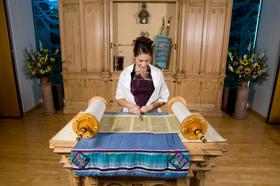Choosing the right educational environment for a child is crucial for parents. For some, the decision involves considering religious schools as an option. Religion cannot be taught in public schools per se. The concept of the separation of church and state is a fundamental principle in American jurisprudence that emphasizes the independence and autonomy of religious and governmental institutions. It refers to the constitutional principle rooted in the First Amendment of the United States Constitution, which states, "Congress shall make no law respecting an establishment of religion or prohibiting the free exercise thereof."Public schools.
Sending your child to a religious school offers the unique advantage of an education that integrates faith, values, and academics, providing a solid foundation for spiritual, moral, and intellectual growth.
In this article, we will explore why parents might choose to send their children to religious schools, focusing on specific religious affiliations.
Roman Catholic
Strong Moral Foundation
Roman Catholic schools emphasize the importance of moral values and character development. Parents may choose these schools to provide their children with a solid ethical framework.
Faith Integration
Catholic schools incorporate religious teachings into various aspects of education. Parents who prioritize religious instruction may opt for Catholic schools to ensure their children receive a comprehensive faith-based education.
Community and Sacraments
Catholic schools often provide a close-knit community where children can form lasting relationships. Additionally, these schools offer opportunities for students to actively participate in sacraments, fostering a deeper connection to their faith.
This video offers a history of Roman Catholic schools.
Episcopalian
Inclusive and Diverse Environment
Episcopalian schools often promote inclusivity and diversity, fostering an environment where children learn to appreciate different cultures, religions, and perspectives.
Academic Excellence
Many Episcopalian schools are renowned for their rigorous academic programs. Parents seeking a balance between high-quality education and spiritual formation may choose these schools.
Social Justice Focus
Episcopalian schools often encourage students to engage in social justice activities and advocate for positive change. Parents who value a curriculum centered around compassion and service may find these schools appealing.
Seventh-Day Adventist
Holistic Education
Seventh-Day Adventist schools aim to provide a holistic education that combines spiritual, mental, physical, and social development. Parents who prioritize the integration of faith into every aspect of their child's life may choose these schools.
Healthy Lifestyle
Adventist schools promote a healthy lifestyle, including vegetarianism, exercise, and emphasis on Sabbath observance. Parents concerned about their child's overall well-being may appreciate these principles.
Biblical Foundation
Seventh-Day Adventist schools prioritize the study of the Bible and encourage a strong understanding of Christian doctrine. Parents seeking a curriculum deeply rooted in their faith may opt for these schools.
Muslim
Islamic Values and Teachings
Muslim schools prioritize the teaching of Islamic values, teachings, and practices. Parents who desire a school environment that reinforces their child's religious identity may choose these schools.
Arabic Language and Quranic Studies
Muslim schools often offer Arabic language instruction and Quranic studies. Parents who wish to ensure their children develop proficiency in Arabic and deeply understand the Quran may prefer these schools.
Community and Cultural Connection
Muslim schools provide a community that shares similar religious and cultural backgrounds. Parents may choose these schools to foster their children's sense of belonging and cultural identity.
An overview of Muslim schools in the United States.
Jewish
Preservation of Jewish Identity
Jewish schools focus on nurturing a strong Jewish identity and cultural heritage. Parents who wish to provide their children with an education that reinforces Jewish traditions, customs, and values may choose these schools.
Hebrew Language and Jewish Studies
Jewish schools often offer Hebrew language instruction and in-depth Jewish studies. Parents who value the preservation of the Jewish language and religious teachings may prefer these schools.
Community and Celebrations
Jewish schools provide a community that celebrates Jewish holidays and fosters connections with fellow Jewish families. Parents seeking an environment that strengthens their child's ties to the Jewish community may opt for these schools.
Quaker
Peaceful and Reflective Environment
Quaker schools prioritize creating a peaceful and reflective educational environment. Parents seeking an education that emphasizes nonviolence, equality, and introspection may choose these schools.
Focus on Social Justice
Quaker schools often integrate social justice into their curriculum, encouraging students to become active participants in creating positive change. Parents who value an education centered on social responsibility may find these schools appealing.
Community and Values-Based Education
Quaker schools provide a tight-knit community where children can develop lasting relationships. Parents who prioritize a values-based education and nurturing empathy and compassion may opt for these schools.
This video offers an overview of Quaker education.
Christian
Faith-Based Education
Christian schools aim to provide a curriculum steeped in Christian beliefs, teachings, and values. Parents seeking an education that aligns closely with their Christian faith may choose these schools.
Moral and Character Development
Christian schools prioritize the development of strong moral character and encourage students to live according to Christian principles. Parents who desire a strong moral foundation for their children may opt for these schools.
Spiritual Nurturing
Christian schools often provide opportunities for students to engage in worship, prayer, and spiritual formation. Parents who value a supportive spiritual environment may find these schools appealing.
Conclusion
Parents choose religious schools for their children for a variety of reasons, including faith integration, moral development, cultural connection, academic excellence, and community. By understanding these motivations, parents can make an informed decision about the educational path that aligns best with their family's values and beliefs.
Questions? Contact us on Facebook. @privateschoolreview
#ReligiousEducation #FaithBasedSchools #ParentingChoices
Source: ChatGPT































































































